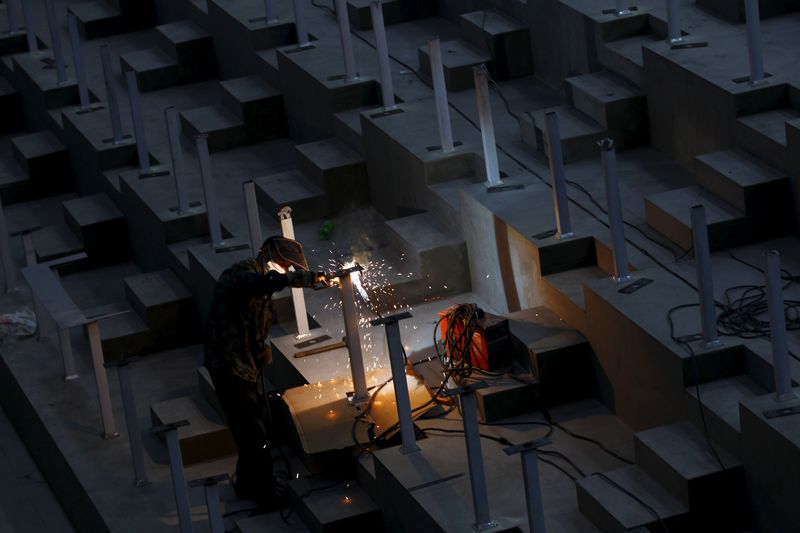By Ellen Zhang, Joe Cash and Liangping Gao
BEIJING (Reuters) -China's property sector worsened in November as negative home buyer sentiment and indebted developers drove down sales and investment, while broader retail sector activity missed forecasts, suggesting more support is needed to shore up demand.
The world's second-largest economy has struggled to mount a strong post-COVID recovery as distress in the housing market, local government debt risks and weakening global demand slowed momentum.
While the Asian giant grew faster-than-expected in the third quarter, domestic demand has remained tepid and manufacturers have had to discount prices to find buyers.
A flurry of policy support measures has proven only modestly beneficial, raising pressure on authorities to roll out more stimulus as analysts say different parts of the economy are running at different speeds and long-standing issues persist.
"Transactions are typically depressed towards the end of the year, and the property sector in general does not want to take on more leverage and house prices are still too high compared to urban incomes," said Dan Wang, chief economist at Hang Seng Bank China.
"People will just wait out this downward spiral," she added.
China's new home prices fell for the fifth straight month in November, data from the National Bureau of Statistics (NBS) showed on Friday, while property investment fell 9.4% January-November year-on-year, after a 9.3% drop in January-October.
Industrial output grew 6.6% in November year-on-year, faster than the 4.6% gain in October and beating expectations for a 5.6% increase in a Reuters poll. It also marked the strongest growth since September 2022.
Retail sales rose 10.1% in November, accelerating from a 7.6% increase in October but missed analysts' expectations for a 12.5% leap mainly fuelled by the low base effect in 2022 when COVID curbs disrupted consumers and businesses.
Analysts struck a cautious note on the improving output data, which was buoyed by quicker growth in automobile production and power generation, noting factory-gate deflation deepened last month and that a full-blown economic recovery remained some way off.
"The market expected pro-growth policies to quickly bear fruit, which has not yet been effectively translated into near-term growth due to the constraints of policy transmission and business confidence," said Bruce Pang, chief economist at Jones Lang Lasalle (NYSE:JLL).
MORE SUPPORT NEEDED
Friday's data follows other November indicators that show the economy struggling for momentum.
Imports extended declines and while exports grew for the first time in six months, analysts attributed this to manufacturers offering unsustainable discounts.
Consumer prices, meanwhile, fell at the fastest in three years and factory deflation deepened.
The patchy recovery has prompted analysts to warn that China may decline into Japanese-style stagnation later this decade unless policymakers take steps to reorient the economy towards household consumption and market-allocation of resources.
"We think that officials are underestimating the extent to which China's slowdown is structural in nature and won't be so easily reversed," Julian Evans-Pritchard, head of China economics at Capital Economics said in a note.
Policy advisers say the government will need to implement further stimulus should it wish to sustain an annual economic growth target of "around 5%" next year, which would match this year's goal.

This week, top leaders said they would step up policy adjustments to support economic recovery in 2024, with a focus on boosting domestic demand.
Beijing and Shanghai on Thursday announced relaxed home purchase restrictions, including reductions to the minimum deposit ratio for first and second homes.